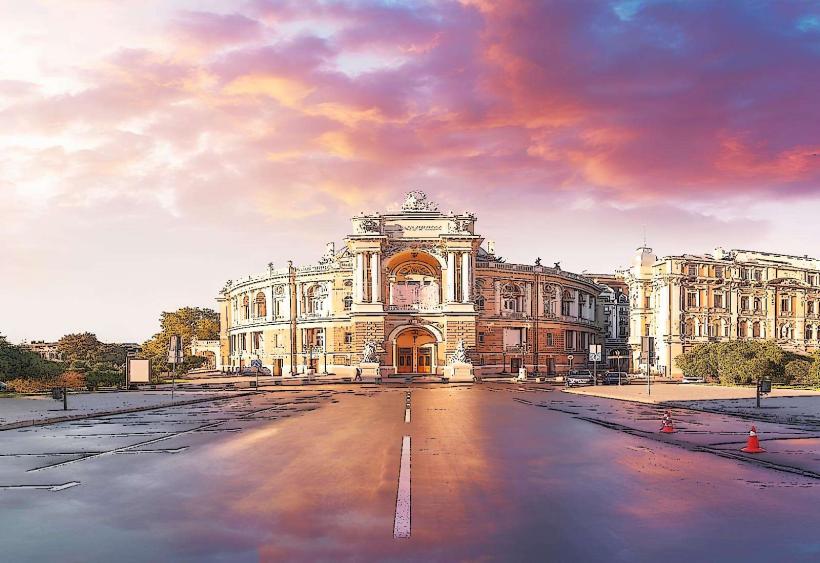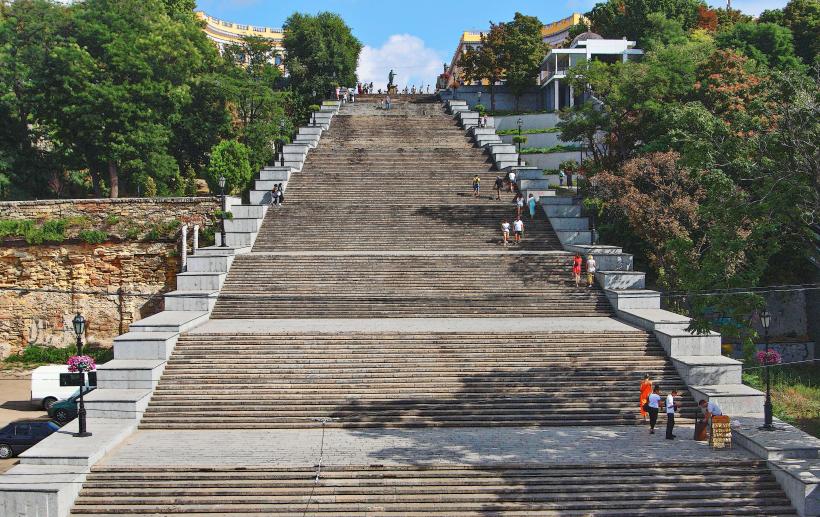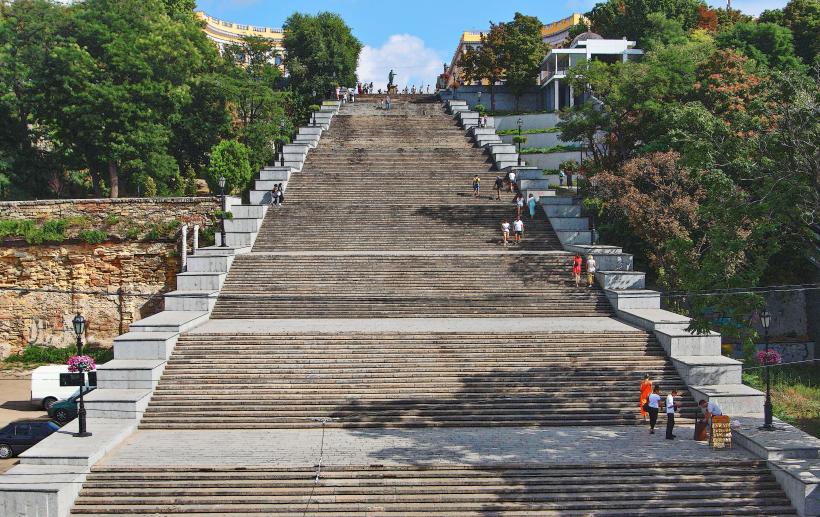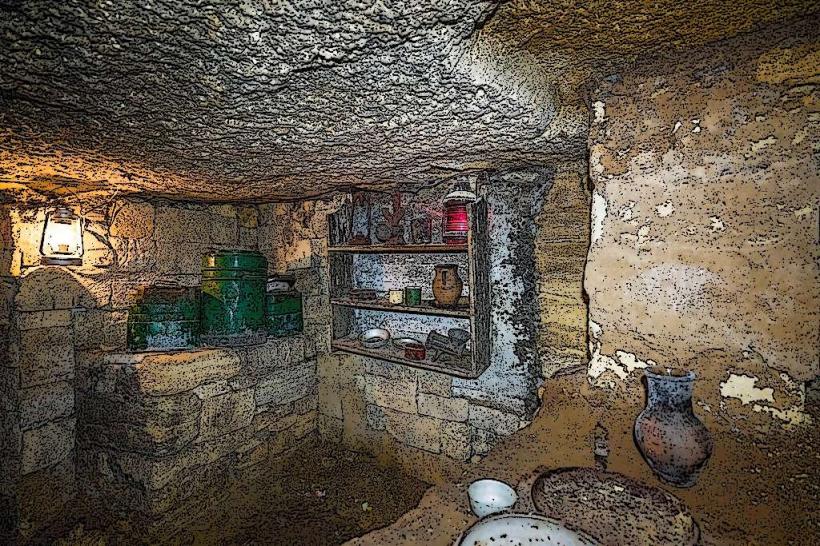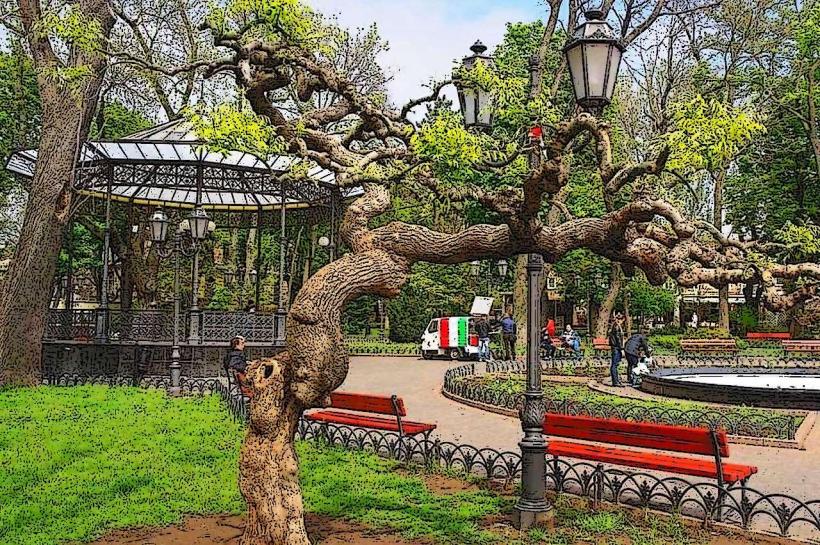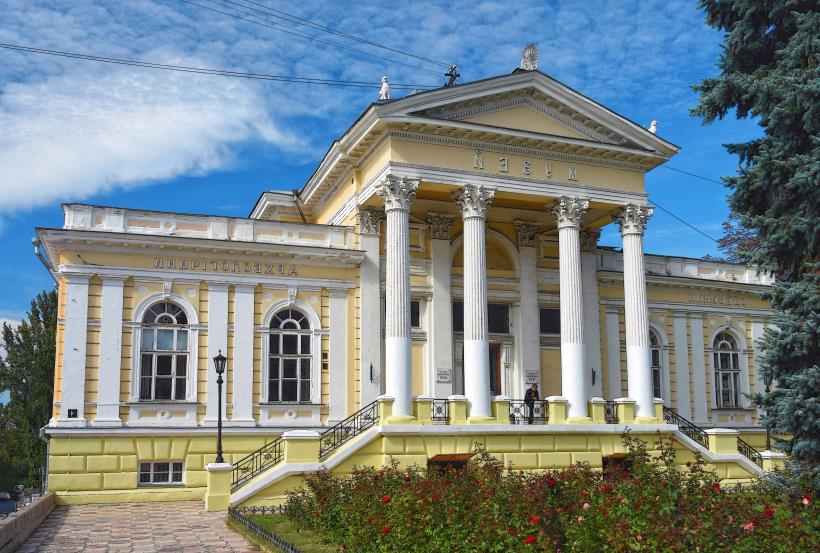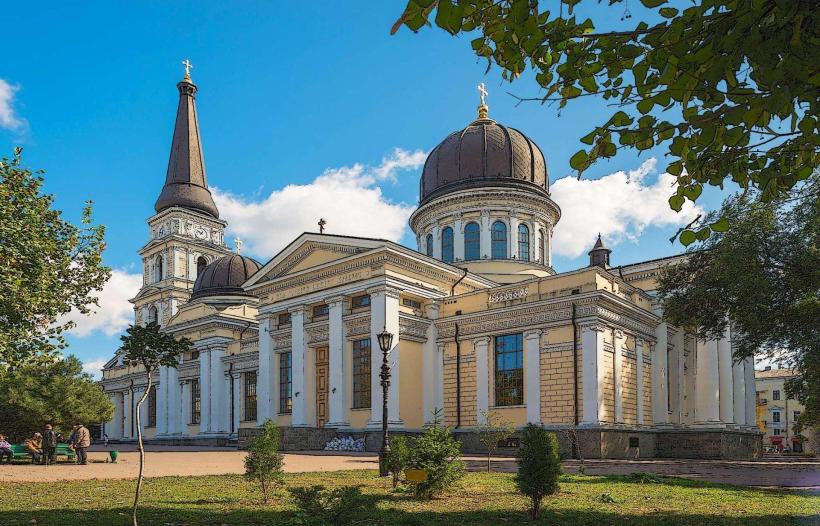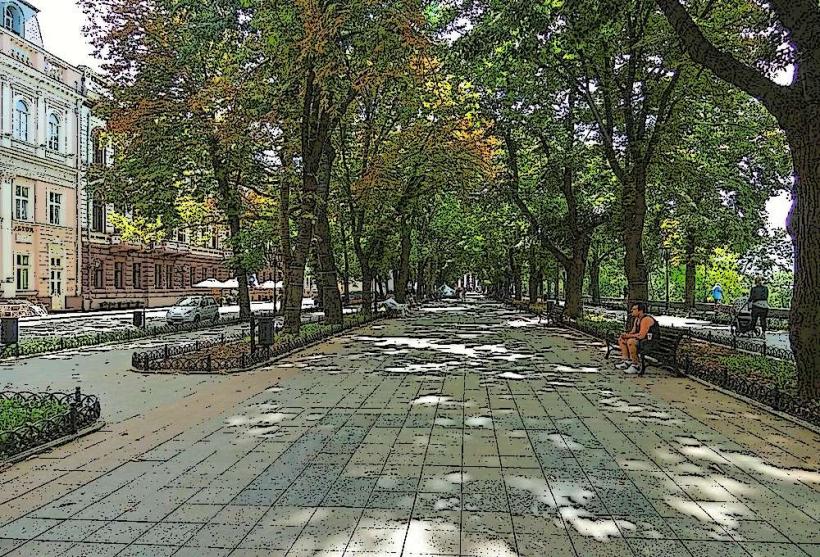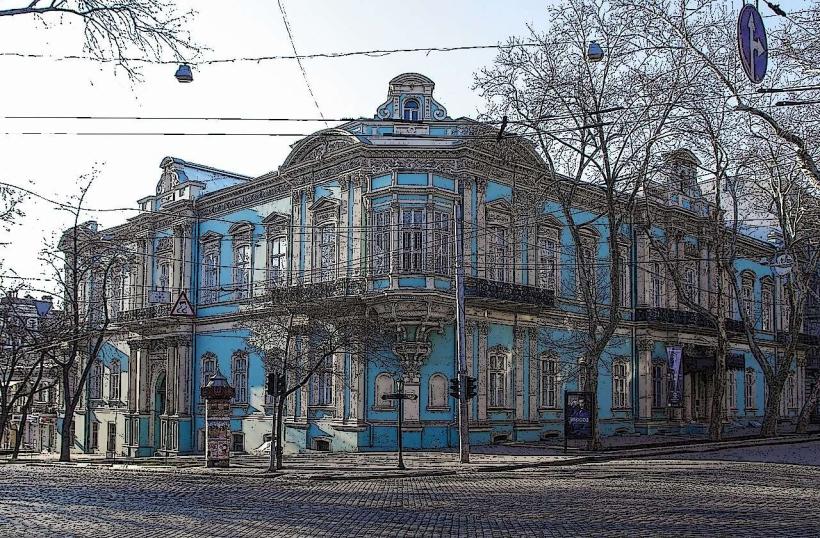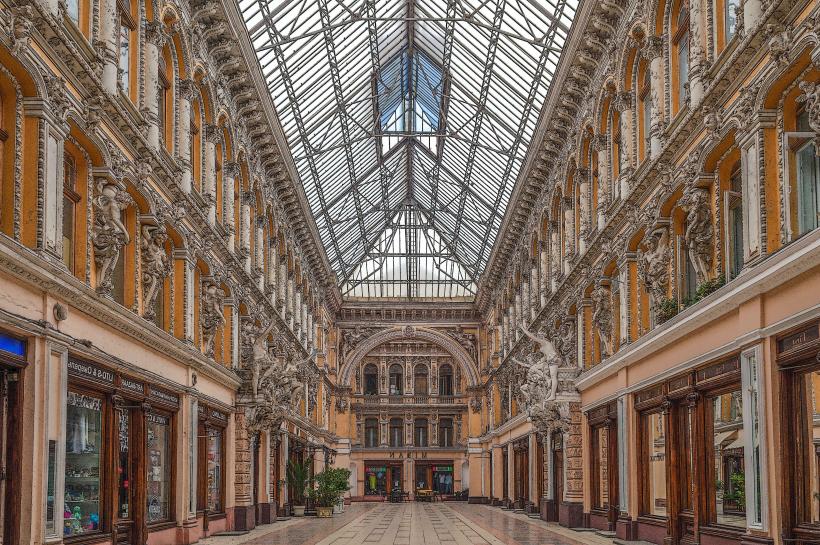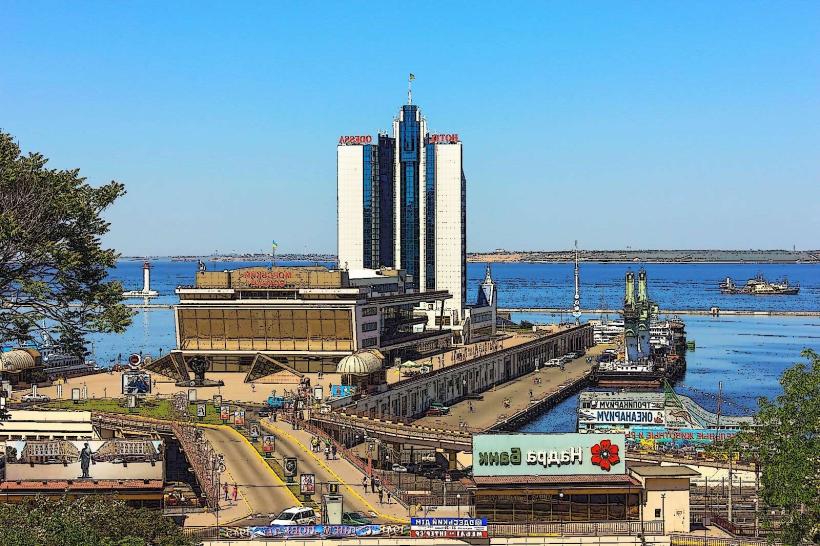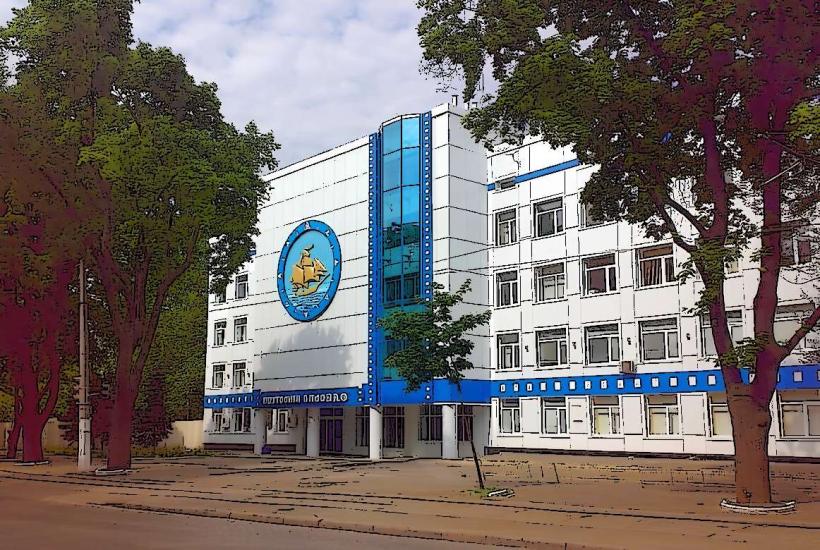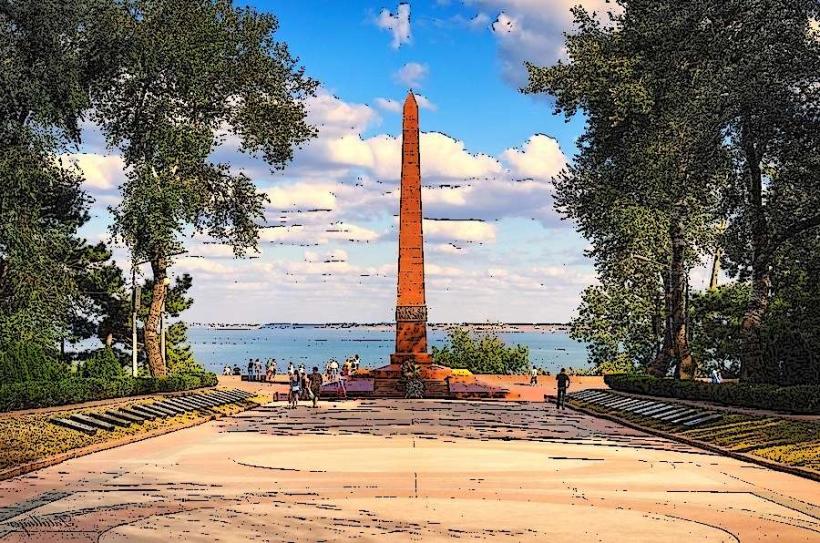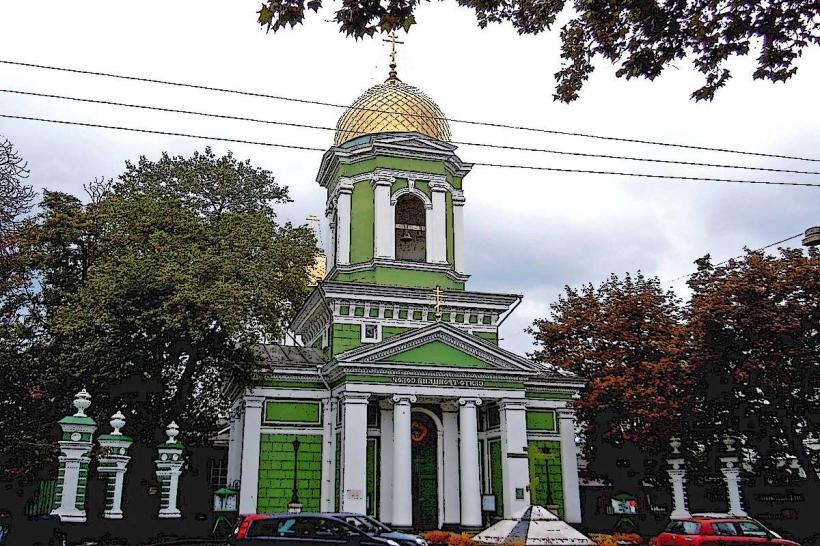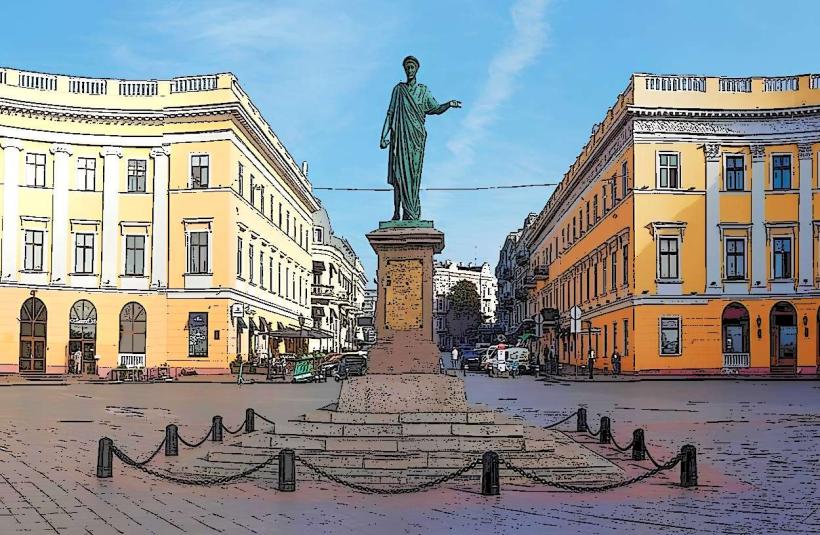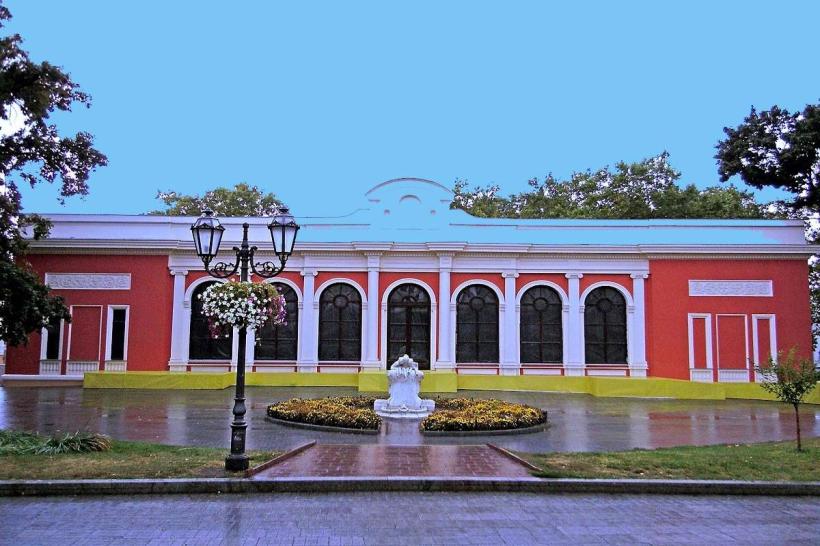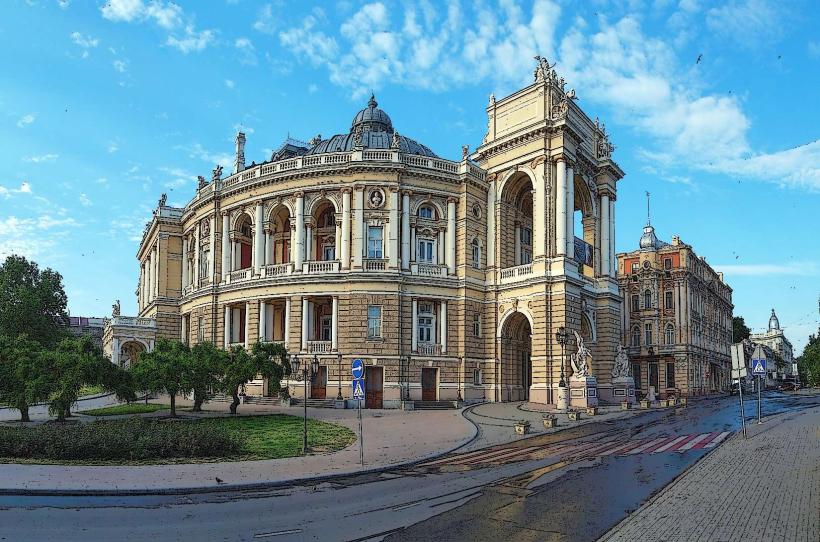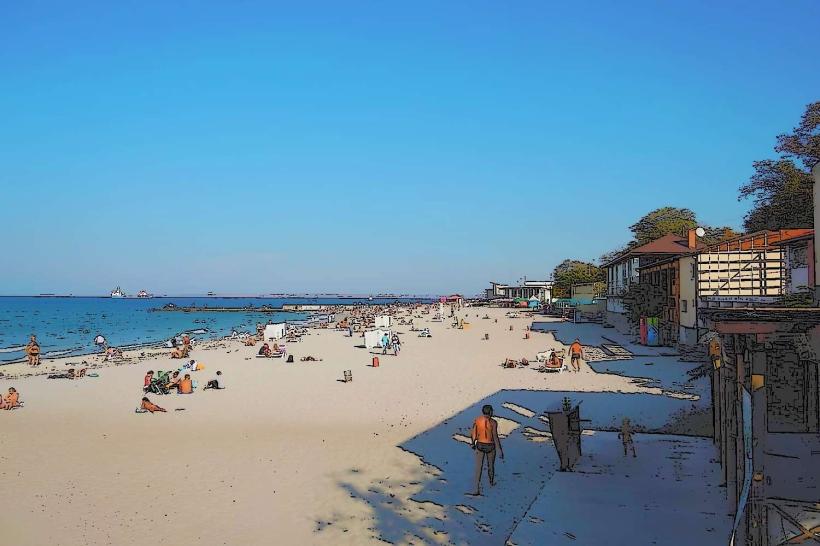Information
Landmark: Vorontsov PalaceCity: Odesa
Country: Ukraine
Continent: Europe
Vorontsov Palace, Odesa, Ukraine, Europe
Vorontsov Palace is a historical estate located in Odesa, Ukraine.
It is situated on Primorsky Boulevard, overlooking the Odesa Bay.
Visual Characteristics
The palace is constructed primarily from sandstone and limestone. Its architectural style is a blend of Neo-Moorish and Neo-Gothic elements. The main building features a prominent central tower, arched windows, and intricate decorative carvings. The exterior color palette consists of light beige and grey stone. The palace has a U-shaped layout surrounding a central courtyard.
Location & Access Logistics
Vorontsov Palace is located at 1 Primorsky Boulevard, Odesa. It is approximately 1.5 km east of the city center. Access is via Primorsky Boulevard, which is a pedestrian-only zone for most of its length. Limited parking is available on nearby streets such as Pushkinska Street, with metered parking zones. Public transport options include bus routes 110, 190, and trolleybus route 7, which stop near the Potemkin Stairs, a short walk from the palace.
Historical & Ecological Origin
Construction of Vorontsov Palace began in 1827 and was completed in 1834. It was designed by architect John B. Toricelli, with later modifications by architect Francesco Boffo. The palace was originally built as a residence for Prince Mikhail Vorontsov, the Governor-General of Novorossiya.
Key Highlights & Activities
Visitors can walk through the palace grounds and admire the exterior architecture. The adjacent park offers pathways for exploration. Photography of the palace facade is permitted. Guided tours of the interior are sometimes available, depending on current access policies.
Infrastructure & Amenities
Restrooms are located within the adjacent park area. Shade is provided by mature trees in the park. Cell phone signal (4G/5G) is generally available in the vicinity. Food vendors and cafes are present along Primorsky Boulevard.
Best Time to Visit
For optimal photography lighting, the late afternoon (approximately 2-3 hours before sunset) provides favorable angles and illumination of the palace facade. The months of May through September offer the most stable weather conditions for outdoor exploration. No specific tide requirements are applicable.
Facts & Legends
A local legend suggests that a secret tunnel connects the palace to the Odesa Port, though this has not been verified. The palace's construction was funded by Prince Vorontsov's personal fortune.
Nearby Landmarks
- Potemkin Stairs (0.2km West)
- Odesa National Academic Theatre of Opera and Ballet (0.8km North-West)
- Duke de Richelieu Monument (0.3km West)
- Odesa Archaeological Museum (0.9km North-West)
- City Garden (1.1km North-West)

